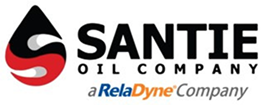The metalworking industry is vast and feeds into a myriad of other markets. For instance, a report in 2016 found that metalworking fluids (or MWF) would reach $9.74 billion by 2020. Among this industry, molub alloy stands out as a fascinating and potentially handy lubricating option. So, here's what you need to know about this alloy before trying it out on any of your metalworking or manufacturing equipment.
What Is Molub Alloy?
Designed as a type of metalworking lubricant, molub alloy is used in various industries and workstations. For example, it has been used for lubricating pallet rails, improving workstation operation, improving automatic transfer machines, producing automatic transmission housings, and much more. In addition, it provides an increased level of protection for various speed levels.
This coolant is also explicitly designed to resist the cleansing action of various types of surface-active coolants. What this means is that it helps to improve wear and tear damage and minimizes inaccuracies. The main idea here is to cut back on excessive reapplication or high levels of lubricant consumption. In this way, molub alloy works well in many industries and settings.
Advantages
If you're on the fence about this alloy, it is crucial to understand a few of its advantages. First, it controls stick-slip, meaning it stops machines from slipping while operating. Second, it is also very resistant to water washing action, so it is an excellent choice for various types of water-based machining. Finally, it also has a strong viscosity level, including the items listed below:
- Viscosity at 40°C, cSt ASTM D 445, D 2161 406
- Viscosity at 100°C, cSt ASTM D 445, D 2161 26.3
- Viscosity at 100°F, SUS ASTM D 445, D 2161 2,179
- Viscosity at 210°F, SUS ASTM D 445, D 2161 130
These technical values should help you better understand what you're getting into with this alloy. Check your machine's manuals or talk to your engineering specialists to determine if this alloy is suitable for your needs. Most should be adaptable with molub alloy, depending on their overall design, their operation, and the type of situations in which they may be used while running.
If this option doesn't work for you, many other metalworking fluids are available on the market. However, molub alloy does tend to be one of the most popular and practical choices, so make sure you research carefully before making a decision. Contact Santie Midwest to learn more about molub alloy and how it can be used in your own business setting today.

